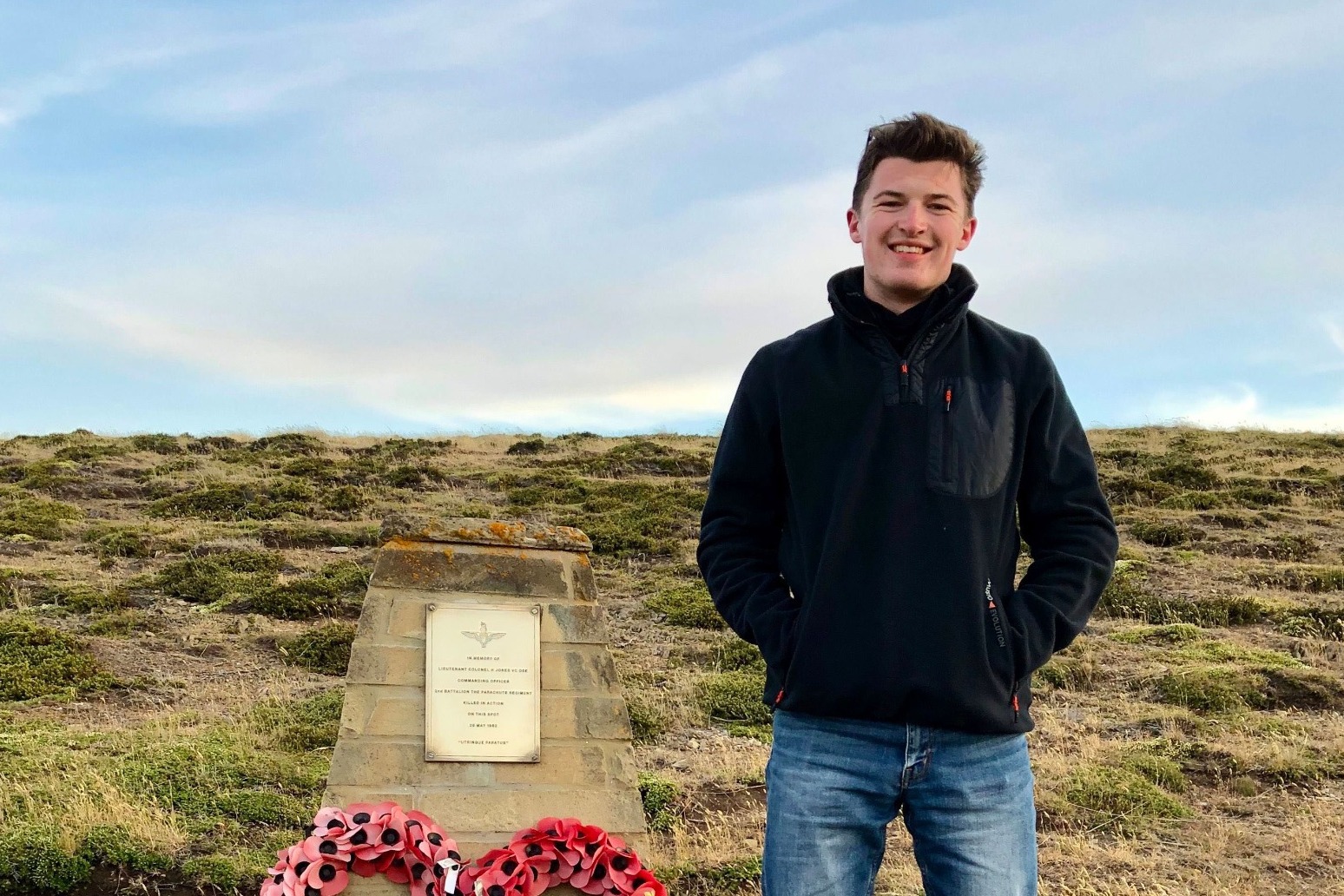
‘The Falklands will always be special to me’, says Lt Col H Jones’ grandson
Lieutenant Colonel Herbert “H” Jones VC was killed charging at an Argentine position during the battle for Goose Green on May 28 1982 in a pivotal moment of the Falklands War.
One of 255 British soldiers who lost their lives during the conflict, the commanding officer of 2nd Battalion, Parachute Regiment, was awarded the Victoria Cross – the highest and most prestigious award of the British honours system – for his actions.
Here Lt Col Jones’ grandson, PA Media reporter Henry Jones, reflects on the conflict and what the Falklands Islands mean to him four decades later:
For many years, the war never made much sense to me. Here was a group of islands, 8,000 miles away, that serving personnel, including my grandfather, fought and died for.
H was someone I learnt more and more about as I grew up; he was this almost mythical figure – someone who did something incredibly brave that I couldn’t quite understand – until I read his biography, written by his friend General Sir John Wilsey, and later visited the Falkland Islands for the first time
Arriving in the Falklands is always surreal. Having spent almost 24 hours travelling, it nonetheless feels like you haven’t really left the UK. It is Dartmoor, Brecon Beacons, the Lake District, and your standard sleepy British village all rolled into one.
I’d grown up staring at the photos in history books; the Argentine soldiers marching through the capital, Port Stanley; moments of suffering as ships sank below the waves; and the first British troops landing on the Islands after their long voyage south.
Now 40 years on, some of the detritus of war remains, but it also feels incredibly empty. Sheep and penguins far outnumber people. Staring into a vast expanse of space, you’re forced to wonder what all the fuss was about.
It is hard to imagine anything violent happening in a place so quiet and peaceful.
The spot where H fell is now marked by a small cairn. It’s a bit of ground that, despite being 8,000 miles away, feels incredibly important to me; the sensation of standing there is such a clear memory.
In Port Stanley, the capital, there’s a memorial wood to the fallen. A tree has been planted in memory of each of the British service personnel killed in the war. H’s is a pine tree, which I think he’d like; he spent much of his childhood in Kingswear, Devon, surrounded by pine trees.
A short walk away is a street named after him, H Jones Road, looking out over the hills that surround Port Stanley.
H and his battalion of a few hundred soldiers were tasked with the first land battle of the war: retaking Goose Green and San Carols, two key settlements being held by Argentine forces.
Vastly outnumbered and fighting against an enemy that was well dug in, they suffered casualties and the attack began to falter. H advanced to the front of the attack, and set out to regain the lost momentum, charging up the gully towards an Argentine position. He was shot and fell, but the balance of the attack had changed.
His Victoria Cross citation reads: “A short time later a company of the Battalion attacked the enemy, who quickly surrendered. The display of courage by Colonel Jones had completely undermined their will to fight further.”
The cross is now on display at the National Army Museum in London.
I visit it from time to time; “for valour” is inscribed on it, and I always feel a huge sense of admiration for him when I do so.
The war took place long before I was born, but H’s legacy has nonetheless shaped who I am today. As I write, there’s a framed photo of him, smiling from ear to ear just after arriving in the Falklands, on my desk.
As part of the 40th anniversary of the conflict, veterans have spoken out and reflected on their experiences. This is especially the case for this year’s anniversary, but every year between the months of April and June, they take to social media to share their stories.
A consistent theme from veterans is the need to not forget the sacrifices made by those who never came home, and all those who suffered as part of the conflict.
There remains to this day a lively debate as to the Falkland’s sovereignty. I’m well aware of the range of views on the subject; indeed I often have them sent to me on social media, with varying degrees of politeness.
In 2013, a referendum was held on its political status, with 99.8% of Islanders voting in favour of remaining a British Overseas Territory.
The Falkland Islands will always be special to me, and I’m unashamedly proud of what H did.
Published: by Radio NewsHub